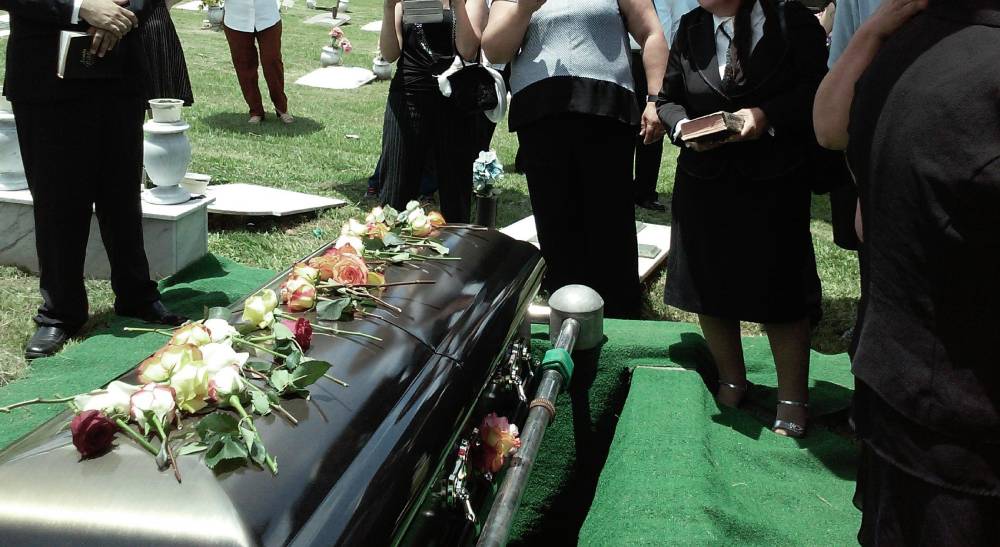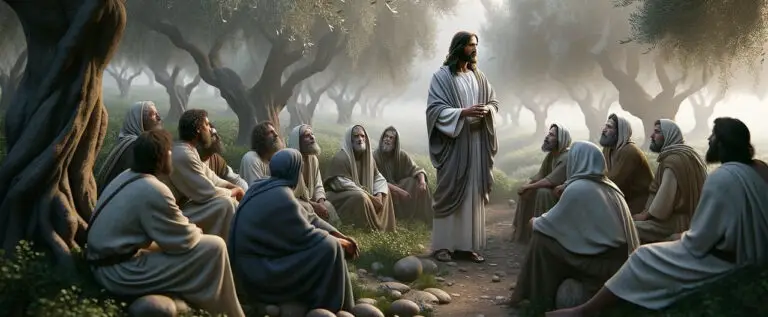I sat beside my grandmother’s hospital bed, watching her chest rise and fall with each labored breath. The doctors had given us the news no family wants to hear: “There’s nothing more we can do.”
As I held her frail hand in mine, a wave of fear washed over me. What would happen to her? What would happen to me someday?
That experience led me on a journey to study and understand what the Bible means when it says “to die is gain.” Like many, I’d heard this phrase. But I hadn’t fully grasped its power to transform how to view life’s most certain event.
When the Apostle Paul wrote in Philippians 1:21,
“For to me, to live is Christ and to die is gain.” – NIV
He wasn’t being poetic or philosophical. He was declaring a truth that can free us from the paralyzing fear of death that holds so many in bondage.
Key Takeaways
- Death for believers is not termination but transition.
- The resurrection of Jesus Christ is our guarantee of victory over death.
- Our perspective on death reveals much about our faith.
- Freedom from the fear of death enables us to live more boldly.
- Death is described as “gain” and “far better” for those in Christ.
- Our language about death should reflect our faith in eternal life.
The Reality of Death in Our World

Death occurs with startling frequency in our world. Statistics tell us that approximately two people die every second around the globe. That’s roughly 156,000 people every day and about 57 million people annually.
Yet despite its commonality, most of us live as if death is something that happens to other people—at least for now. We speak about it in hushed tones. We use euphemisms. We change the subject when it comes up in conversation.
Why? Without faith in Christ, death feels like the ultimate loss. It seems to end everything we know and love.
The fear of death manifests in countless ways. Think about common phobias: fear of flying, fear of heights, fear of enclosed spaces. At their core, these are often expressions of our deeper fear of mortality. This fear can keep us from taking risks, pursuing dreams, and living fully.
The writer of Hebrews points out, many people are “subject to slavery all their lives because of their fear of death” (Hebrews 2:15). This bondage affects everything from our daily choices to our ability to find peace and joy.
Victory Over Death: The Foundation

The foundation of our victory over death isn’t found in positive thinking or philosophical resignation. It’s grounded in a historical event: the resurrection of Jesus Christ.
In 1 Corinthians 15:17-20 (NIV), Paul lays out the case for why the resurrection matters so profoundly:
“17 If Christ has not been raised, your faith is futile; you are still in your sins. 18 Then those also who have fallen asleep in Christ are lost. 19 If only for this life we have hope in Christ, we are of all people most to be pitied. 20 But Christ has indeed been raised from the dead, the firstfruits of those who have fallen asleep.”
The resurrection of Jesus wasn’t just a miracle for him. It was the prototype for what will happen to all who believe. When Jesus conquered death, he did so as our representative, securing our victory as well.
What does this mean practically? It means death has lost its finality. It means the grave is not our end. It means what happened to Christ’s body will happen to ours:
“42 So will it be with the resurrection of the dead. The body that is sown is perishable, it is raised imperishable; 43 it is sown in dishonor, it is raised in glory; it is sown in weakness, it is raised in power.” – 1 Corinthians 15:42-43 (NIV)
Reframing Our Understanding of Death

One of the most profound shifts we can make is to stop thinking of death as termination and start seeing it as transition. Death isn’t the end—it’s a departure from one place to another.
The New Testament consistently uses the language of departure rather than ending when referring to death. Paul himself wrote about his desire “to depart and be with Christ, which is far better” (Philippians 1:23). He didn’t view death as ceasing to exist but as relocating to Christ’s presence.
This perspective transforms how we think about our lifespan. In Psalm 90:12 (NKJV), Moses prays,
“Teach us to number our days, that we may gain a heart of wisdom.”
When we understand life’s brevity compared to eternity, we gain proper perspective.
From God’s eternal viewpoint, our entire lifetime is incredibly brief. As Psalm 90:4 (NIV) tells us,
“A thousand years in your sight are like a day that has just gone by.”
Even if we live 100 years, that’s like a few hours from God’s perspective.
This doesn’t diminish the value of our earthly life. It enhances it by placing it within its proper context. We’re not just living for these few decades; we’re living in light of eternity.
Numbering Our Days: Living with Purpose

There’s profound wisdom in acknowledging our mortality. When we “number our days,” we become intensely aware that time is our most precious and limited resource.
This awareness doesn’t lead to morbid preoccupation with death. Instead, it creates urgency and focus. We’re less likely to waste time on trivial matters. We feel more driven to chase what really counts—our relationships, purpose, legacy, and spiritual growth.
The New Living Translation renders Psalm 90:12 as:
“Teach us to realize the brevity of life so that we may grow in wisdom.”
Understanding life’s shortness makes us wiser about how we live it.
This wisdom also brings freedom. When you’re no longer terrified of death, you’re free to live courageously. You can face threats and challenges with confidence. Even the worst outcome—death—loses its sting for those in Christ.
As Paul triumphantly declares,
“Where, O death, is your victory? Where, O death, is your sting?” – 1 Corinthians 15:55 (NIV)
The answer? Death’s victory is swallowed up in Christ’s victory. Death’s sting is removed for believers.
The Believer’s Hope: What Awaits Us

So what exactly makes death “gain” for the believer? Paul gives us a glimpse when he describes being with Christ after death as “far better” than remaining in the flesh.
Our present bodies, while wonderfully made, are subject to decay, disease, pain, and limitation. The Bible describes our current condition as “the body of our humiliation” (Philippians 3:21, ASV).
Scripture promises that our bodies will be changed to be like Christ’s glorious resurrection body. Paul writes in Philippians 3:20-21 (NIV):
“20 Our citizenship is in heaven. And we eagerly await a Savior from there, the Lord Jesus Christ, 21 who, by the power that enables him to bring everything under his control, will transform our lowly bodies so that they will be like his glorious body.”
Being present with the Lord means freedom from all physical and spiritual limitations. People with near-death experiences often say they feel more aware, have sharper senses, and gain amazing clarity when they exist outside their bodies for a short time.
For believers, death means gaining:
- Immediate presence with Christ.
- Freedom from pain and suffering.
- Perfect holiness without struggle against sin.
- Clarity of perception and understanding.
- Joy unspeakable and full of glory.
- Reunion with believers who have gone before.
- A foretaste of our final resurrection.
It’s no surprise that Paul, who was taken up to paradise and heard things beyond words (2 Corinthians 12:2-4), thought being with Christ is far better than staying in the flesh!
Practical Application: Changing Our Language and Mindset

If we truly believe that “to die is gain,” then we need to change how we speak about death. Our language reveals and reinforces our beliefs.
Consider common phrases like “I lost my father last year” or “Sorry for your loss.” While well-intended, these expressions subtly contradict our faith. If we believe in eternal life, then our loved ones who die in Christ aren’t “lost”—we know exactly where they are! They’re in the presence of the Lord.
Using the past tense for deceased believers, like “He was a wonderful man,” implies they no longer exist. This can suggest they don’t continue to live in another realm. They still are wonderful—they’re just not here anymore.
I’ve been working to shift my own language. Instead of saying “I lost my grandmother,” I might say, “My grandmother went home to be with the Lord” or “She’s with Jesus now.” This isn’t denial—it’s affirmation of what I believe happens after death.
This shift extends to our emotional responses as well. Jesus told his disciples in John 14:28 (NIV):
“If you loved me, you would be glad that I am going to the Father.”
Grief is normal when we lose loved ones. Yet, as believers, we can find joy too. We know our loved ones in Christ are now in a place that is “far better.”
Being a Witness Through Our Attitude Toward Death

How we face death—both our own and that of loved ones—is one of the most powerful testimonies we can offer the world.
The Apostle Paul wrote,
“We do not want you to be uninformed about those who sleep in death, so that you do not grieve like the rest of mankind, who have no hope.” – 1 Thessalonians 4:13 (NIV)
Note that he doesn’t say believers don’t grieve—we do. But we don’t grieve like those without hope.
When non-believers see Christians facing death calmly, they start to wonder. Instead of panic, they see hope and confidence. This contrast sparks curiosity. How can they be so calm? What do they know that I don’t?
This doesn’t mean putting on a fake spiritual face or denying real emotions. It means allowing the truth of “to die is gain” to transform how we process and express those emotions.
Our confidence in the face of death becomes an opportunity to share the gospel. Our peace comes from knowing Jesus defeated death when he rose again. Through faith in him, we share in that victory.
Living in Light of “To Die Is Gain”
So how do we live in light of this truth? Here are some practical suggestions:
- Practice gratitude for each day. Numbering our days means recognizing each one as a gift.
- Invest in eternity. Focus your time, energy, and resources on what will last beyond this life.
- Comfort others with biblical truth. When fellow believers face death or lose loved ones, remind them of our blessed hope.
- Prepare spiritually for your own death. Live ready to meet the Lord at any moment.
- Share the gospel urgently. Many around us are still in bondage to the fear of death.
- Speak accurately about death. Let your language reflect theological truth.
- Remember the resurrection. Our ultimate hope isn’t just being with Christ in spirit but the final resurrection when Christ returns.
Conclusion
“To die is gain” isn’t just a comforting thought for funeral services. It’s a life-altering truth that can free us from fear and empower us to live and die with confidence.
When we truly believe what Paul declared in Philippians 1:21—“For to me, to live is Christ and to die is gain”—death loses its power to terrorize us. It transforms from our greatest enemy to a doorway into something “far better.”
As we face the reality that approximately two people die every second around the world, we don’t need to recoil in fear or denial. We can confront mortality with confidence, saying,
“Thanks be to God, who gives us the victory through our Lord Jesus Christ.” – 1 Corinthians 15:57 (NKJV)
Death isn’t the end of our story. For those in Christ, it’s just the beginning of the best chapter.
Frequently Asked Questions
Q. What does “to die is gain” mean in the Bible?
A. “To die is gain” comes from Philippians 1:21 where Paul writes, “For to me, to live is Christ and to die is gain.” He means that death allows believers to be with Christ right away. This is better than staying in our earthly bodies, which have many limitations and struggles.
Q. Is it wrong for Christians to fear death?
A. Fear of death is natural to our human condition. But Christ came to “free those who all their lives were held in slavery by their fear of death” (Hebrews 2:15). Feeling anxious about death is normal. But Christians can beat that fear by trusting in Christ’s resurrection.
Q. How should Christians talk about deceased believers?
A. We should speak in ways that reflect our belief in eternal life. Rather than saying someone is “gone” or that we “lost” them, we can acknowledge they’re “with the Lord” or have “gone to be with Christ.” It’s also appropriate to speak of them in the present tense since they continue to exist.
Q. Does “to die is gain” mean Christians should welcome death?
A. While death brings believers into Christ’s presence, we’re also called to value and use our earthly lives for God’s purposes. Paul said he was “torn between the two.” He wanted to leave and be with Christ, which is better. But he also saw the value in staying to help others (Philippians 1:23-24).
Q. How does belief in resurrection differ from general belief in an afterlife?
A. Christian hope isn’t just about souls living on after death. It promises bodily resurrection. This means transformed physical bodies, like Jesus had after he rose. This makes Christianity unique among beliefs about the afterlife.
Q. How can I overcome my fear of death?
A. Overcoming fear of death comes through growing in faith and understanding of what Christ accomplished. Meditating often on Scriptures about resurrection, eternal life, and Christ’s victory over death can transform your thoughts. Fellowship with mature believers who model peace about death can also help.






